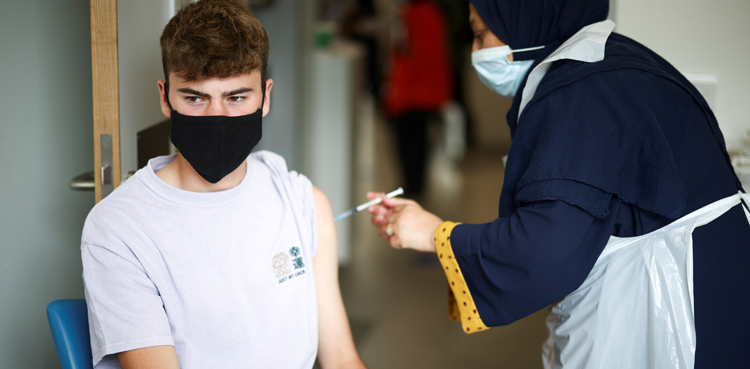
A fourth dose of the COVID-19 vaccine from Pfizer and BioNTech provided significant added protection against severe disease, hospitalization and death for at least a month in older individuals, according to a study from Israel conducted when the Omicron variant was dominant.
The estimated effectiveness of the fourth dose during days 7 to 30 after it was administered compared with a third dose given at least fourth months earlier was 45% against infection, 55% for symptomatic disease, 68% for hospitalization, 62% for severe disease and 74% for death, the research team reported on Wednesday in The New England Journal of Medicine. The study compared 182,122 individuals aged 60 and older who received a fourth dose and 182,122 very similar people who had received a third dose but not a fourth.
“The results of our real-world study suggest that a fourth vaccine dose is, at least initially, effective against the Omicron variant,” the researchers said. “Additional follow-up will allow further assessment of the protection provided by the fourth dose over time.” A recently published larger Israeli study that looked only at rates of breakthrough infections and serious illness after the fourth dose found that efficacy waned quickly versus infection but held steady versus severe illness.
Risk of breakthrough infections tied to psychiatric problems
People with mental health problems are at higher risk for breakthrough infections after receiving COVID-19 vaccines, new data show.
Researchers in California tracked more than a quarter of a million fully vaccinated patients in the U.S. Veterans Affairs health system. Nearly all were men, and roughly half had received at least one psychiatric diagnosis in the past five years. Overall, 14.8% developed COVID infections despite vaccination. Compared to study participants without a psychiatric diagnosis, those over age 65 with substance abuse, psychotic disorders, bipolar disorder, adjustment disorder or anxiety faced up to a 24% higher risk of breakthrough infections, the study found. For those under 65, risks were up to 11% higher than for those without a psychiatric history, the researchers reported on Thursday in JAMA Network Open.
“Our research suggests that increased breakthrough infections in people with psychiatric disorders cannot be entirely explained by socio-demographic factors or pre-existing conditions,” said study leader Aoife O’Donovan of the San Francisco VA Health Care System. “It’s possible that immunity following vaccination wanes more quickly or more strongly for people with psychiatric disorders and/or they could have less protection to newer variants.”
from Health News - Latest breaking Health News - ARY NEWS https://ift.tt/0u5YmvN


0 Comments